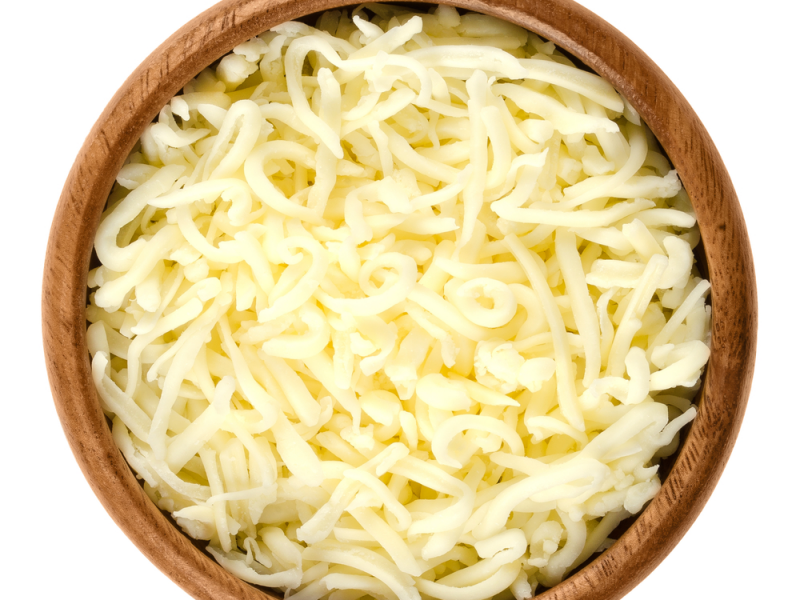- The average slice of pizza has 12 grams of protein, according to Chelsey Amer, a registered dietitian.
- Pizza can help you absorb Lycopene, an antioxidant found in brightly-colored fruits and vegetables, that may lower blood pressure rates.
- Fresh vegetables are one of the healthiest pizza toppings, according to Amer.
Pizza – a beloved food made with dough, tomato sauce, cheese, and various toppings – got its start in Italy in the late 1700s, according to History.com. Since then, pizza has become loved by millions all over the world. It’s estimated that Americans spent $45.1 billion dollars on the greasy goodness in 2018, per PMQ Pizza Magazine.
Pizza may seem like an indulgent treat, but the greasy pies really do provide certain nutritional benefits. Here are 10 reasons that pizza is actually good for you, according to the experts.
Pizza toppings can be surprisingly healthy.

Ordering a pizza that’s loaded up with vegetables and lean proteins can provide ample nutrients that a person needs in his or her daily diet. Chelsey Amer, MS, RDN, CDN, and owner of Chelsey Amer Nutrition, told INSIDER that it is all about making smart choices when ordering up your next slice.
“When we think of pizza, we typically think of greasy comfort food. Pizza doesn’t deserve to be demonized as junk food, the way it’s often portrayed,” Amer says. “Pizza can be a balanced meal and there are plenty of ways to boost the nutrition of your average slice of pizza too. Not all slices are created equally. For example, a greasy slice with extra pepperoni or a deep-dish meat lovers pie may not be your best bets.”
Pizza can have a lot of protein.

The body uses protein to help with daily body functions. According to Amer, the average slice of pizza has about 12 grams of protein, largely coming from the cheese. An adult should consume 7 grams of protein for every 20 pounds of his or her body weight, according to the National Academy of Medicine.
"Protein is an essential nutrient to help you stay satiated and full, plus as the building blocks for many bodily needs," says Amer. "Everyone has different protein needs. To find out the amount of protein that's right for you, I suggest working with a qualified dietitian."
Pizza can help your body absorb lycopene — an antioxidant found in tomatoes.

Lycopene is an antioxidant that can be round in brightly-colored fruits like strawberries, raspberries, and tomatoes. Tomatoes are the base of most pizza sauces. People consume Lycopene to help lower blood pressure and bring down high cholesterol rates, according to the US National Library of Medicine.
"Lycopene is more readily absorbed from cooked tomatoes compared to fresh," said Amer. One tablespoon of pizza sauce, the approximate amount in one average slice, contains almost 2,000 mcg of lycopene. According to the USDA, that's the equivalent of eating one-half cup cherry tomatoes.
For a healthy slice, keep it simple.

Take a look at many pizza chain menus and you'll find all sorts of toppings that extend well beyond the standard crust, sauce, and cheese. For a more nutritious slice, Amer suggests sticking to basic toppings like sauce and cheese.
"Pizza, the way it was originally designed, is pretty straightforward. It should have a simple crust, plenty of tomato sauce, and a sprinkle of cheese," says Amer. "Pizza contains a balance of the same three major nutrients we need to build a well-balanced and satisfying meal including carbohydrates, protein, and fat. The crust is your carbohydrate, cheese contains protein and fat."
Skip the deep dish pizza and order thin crust instead.

Amer recommends sticking with a thin crust pizza for a more balanced meal. A thin crust pizza will contain fewer calories than a pizza with a thicker dough, according to Amer.
"With a thin crust pizza, you'll eat a better balance of carbohydrates, protein, and fat than you would with a thicker crust," says Amer.
Pizza is a well-balanced meal — even for breakfast.

According to Amer, it doesn't matter what time of the day you eat pizza, it can still be a balanced meal choice. And yes, that includes breakfast, too.
"When looking for a balanced breakfast, look for a combination of protein, carbohydrates, and fat. Pizza contains carbohydrates which are the crust, plus protein and fat, the cheese," says Amer. "Plus, if you're choosing to eat a slice of pizza for breakfast because you're really craving it, this can prevent you from bingeing on an entire pie later."
Now, that's not to say that pizza is the most nutritious choice.
"There are more nutritious breakfast options, such as a veggie omelet with whole grain toast and a piece of fruit," says Amer. "However, there's protein and fat to balance out the refined carbohydrate crust in a slice of pizza. This means that your blood sugar won't spike and then crash in the same fashion as it would with a sugary bowl of cereal, for example, which will leave you filling full and satisfied for a longer period of time."
Pizza made from whole wheat crust packs an even bigger nutritional punch.

At some fancier pizzerias, you may get to choose between regular pizza dough and whole wheat pizza dough. Whole wheat bread contains fewer carbs than white bread and has a higher fiber content that fills a person up quicker, according to a study published in ScienceDaily.
"If you can, opt for a whole wheat crust because you're eating more fiber along with your slice, plus additional vitamins and minerals," says Amer.
Pizza can help you maintain your diet.

If you eat healthy most days, it's OK to veer off course and chow down on a greasy slice of pizza every now and then. It might just help you live an overall healthier lifestyle.
"Remember, one meal won't make you unhealthy or make you gain weight. It also isn't going to make or break your health," says Amer. "One part of your health is defined by the average of the foods that you eat. Stressing about eating your favorite slice of pizza, even if it's a meat lovers slice, won't help your health or sanity."
Pizza can make your bones stronger.

According to the Eunice Kennedy Shriver National Institute of Child Health and Human Development, dairy products like cheese are good sources of calcium. The body uses calcium to help maintain strong bones and prevent the onset of osteoporosis, which can cause brittle and weak bones.
"The cheese contains protein and fat. I usually recommend asking for 'light' cheese because many pizza shops over-do it on this topping," says Amer. "Cheese is also a good source of calcium, which your body needs to maintain strong bones."
Pizza can help you eat more veggies.

If you don't enjoy eating your vegetables from a pile on your plate, try placing them atop your pizza. When combined with cheese, sauce, and dough, vegetables can take on a whole new life. While Amer doesn't advise eating pizza for every meal, she does note that pizza can be a good way to eat your vegetables.
"The best topping for your pizza is fresh veggies because they contain vitamins, minerals, and antioxidants, which host a plethora of health benefits," says Amer. "I suggest getting a Primavera pizza, which is a medley of fresh vegetables. The only caveat when opting for veggie toppings is to look out for fried vegetables like eggplant. This adds a ton more calories and fat, which isn't ideal for a well-balanced meal."
Visit INSIDER's homepage for more.
